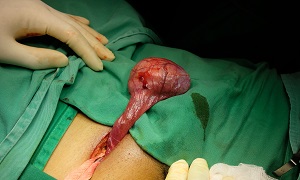Best Testicular Cancer treatment Doctors in India
Best Testicular Cancer Treatment Hospitals in India
- City: Bengaluru, India
Hospital Highlights:
- Fortis Hospital Bannerghatta, Bengaluru was established in 2006.
- The hospital is a 276 bedded multi-specialty tertiary care facility.
- The hospital specializes in cutting-edge medical technology and dedicated patient care services.
- The hospital is equipped with state-of-the-art technologies like trans-radial angioplasty, trans-abdominal cardiac surgery, and computerized TKR navigation surgery.
- The hospital provides specialty medical services in cardiology, cardiac surgery, orthopedics, neurology, neuro-surgery, GI, and Minimal Access Surgery (MAS).
- City: Chennai, India
Hospital Highlights:
- Fortis Malar was established in 1992 and was formerly known as Malar Hospital.
- The hospital specializes in cutting-edge medical technology and dedicated patient care services.
- The hospital is multi-specialty, tertiary care facility with 180 beds.
- The hospital offers comprehensive medical care in specialties such as cardiology, cardio-thoracic surgery, neurology, neurosurgery, orthopedics, nephrology, gynecology, gastroenterology, urology, pediatrics, and diabetes.
- City: New Delhi, India
Hospital Highlights:
- Established in 1996, Pushpawati Singhania Research Institute is one of the top hospitals in the NCR region, as well as one of the top facilities in India for gastroenterology. The hospital is one of South Asia’s first institutes in medical and surgical treatment for diseases related to digestion.
- The hospital is equipped with state-of-the art facilities coupled with the latest equipment as well as renowned consultants from various parts of India as well as other parts of the world.
- City: New Delhi, India
Hospital Highlights:
- State-of-the-art technology and devoted healthcare professionals have been brought together under one roof at Venkateshwar Hospital to provide genuine medical care. The hospital’s professionals work together as a team to deliver the best possible treatment to their patients, using the most sophisticated equipment and information technology.
- Venkateshwar Hospital’s mission is to attain global excellence in healthcare by employing evidence-based, ethical clinical practices and cutting-edge technology by a team of highly skilled experts.
- City: New Delhi, India
Hospital Highlights:
- Sir Ganga Ram Hospital, New Delhi is known to provide the latest medical procedures with the latest technology in all of its units.
- The hospital has a team of reputed doctors, nurses, and healthcare professionals that ensure that patients receive quality care at affordable costs.
- Staffed with a team of highly qualified doctors, dedicated nurses, and paramedical and non-medical staff, the hospital aims to lead in healthcare delivery, medical education, training, and research.
- As per the vision of the founder, the hospital also provides free treatment to the economically weaker sections of society.
- Sir Ganga Ram Hospital also provides training to young doctors under the Diplomate in National Board(DNB) program. The DNB program at the hospital was started in 1984 and it is known for currently running the maximum number of DNB specialties in the country. It also has the distinction of having the first bone bank in India.
- City: Kerala, India
Hospital Highlights:
- Established in 2019, Apollo Adlux Hospital is the first Apollo Hospital in Kerala and the 73rd hospital owned by Apollo Group in India. With the state’s most advanced, comprehensive healthcare infrastructure and cutting-edge technologies, Apollo Adlux Hospital stands as an example of medical excellence in Kerala.
- With over 34 multi-specialty departments, the hospital believes in providing the best quality treatment to its patients at affordable rates, ensuring comfort at their difficult times.
- The 300-bed hospital is managed by a team of highly qualified and experienced experts who delivers exceptional hospitality to their patients and treats them with great compassion.
- With its affiliation with the Apollo Hospitals Group, the hospital aims in providing patients with top-notch healthcare services while also serving communities in Kerala.
- The hospital has good railway and road connections, and is conveniently close to Cochin International Airport.
- City: Gurugram, India
Hospital Highlights:
- Situated near DLF Cyber City, Gurugram, Narayana Superspecialty Hospital is one of the top medical facilities in the Delhi NCR region, catering to the needs of the people. Known for its commitment to quality medical care and patient service, the hospital is a state-of-the-art facility with planned and well-equipped sections, which includes a spacious OPD area as well as comfortable patient rooms.
- It is the closest super-specialty hospital from Indira Gandhi International Airport towards Gurugram, and also the nearest super specialty hospital from DLF Cyber City. It is also close to major residential areas in Gurugram.
- It is part of the renowned Narayana Health Group. Established in 2000, by Dr. Devi Shetty, a renowned cardiac surgeon, it has grown to be one fo India’s leading healthcare groups.
- City: Noida, India
Hospital Highlights:
- Fortis Hospital, Noida, stands as one of the oldest and most trusted healthcare institutions in the region, setting a benchmark for comprehensive medical care.
- As the second mega hub hospital in the Fortis Healthcare Group, Fortis Hospital, Noida, upholds a legacy of trust among more than 1.2 million patients. By integrating top-tier professionals with cutting-edge technology, the hospital delivers superior treatment across various medical disciplines.
- Specializing in advanced Neurosciences, Orthopedics, Kidney and Liver Transplant Programmes, Fortis Hospital, Noida has successfully performed over 1,500 transplants, solidifying its reputation as a leader in specialized medical interventions.
Testicular Cancer
Cancer occurs when the cells grow abnormally and also invade nearby tissues and eventually spreading to other organs in the body through the bloodstream or the lymph nodes.
Testicular Cancer is the cancer of the testicles (testes) that are located inside the scrotum. The main function of the testicles is the production of male sex hormone (testosterone) & sperm production. Testicular cancer may attack one or both testicles and if untreated, may also spread to other parts of the body.
Testicular Cancer causes
- Family history of testicular cancer.
- An undescended testicle (testicle has not moved into the scrotum).
- Age 20-34 years, however it can occur at any age.
- HIV/AIDS
- Men with fertility problems have an increased risk of testicular cancer.
- Men with inguinal hernia are at greater risk of developing testicular cancer.
- Taller men have an increased risk of testicular cancer.
Signs & symptoms of Testicular Cancer
- A lump which is painless can be felt in the testicle.
- Swelling of the testicle.
- Swollen lymph nodes.
- Fatigue
- Weight loss
- A dull pain in the testicle, scrotum or groin.
- Heavy or feeling as there is something in the scrotum.
Types of Testicular Cancer
- The testicles are made up of many types of cells and each of these cells can give origin to a variety of cancer in the testicles. It is important to understand the type of cancer for an effective treatment strategy, because the treatment can vary by the type of cancer in the testicles.
- Germ Cell Tumors (GCTs)- Germ Cells are the cells that produce the sperm. More than 90% of testicular cancers originate in the germ cells. There are two main types of GCTs, viz. Seminomas and Non-seminomas Germ Cell Tumor (NSGCT). Both of them can occur at the same rate and men can have either one or both
- Seminoma Tumors- Seminoma Tumors are generally less aggressive than non seminomas. Although they can happen at all age groups, but elderly men are more likely to have seminoma.
- Non-seminoma- Non-seminoma Germ Cell Tumors are the more aggressive types. They generally happen occur in younger men. They grow and spread rapidly and hence, need immediate intervention. NSGCTs have variety of sub-types such as; Choriocarcinoma, Embryonal carcinoma, Teratoma & Yolk Sac tumor
Stages of Testicular Cancer
- Stage 1: Cancer is confined to the testicles.
- Stage 2: Cancer has spread to the lymph nodes in the testicle
- Stage 3: Cancer has spread beyond the lymph nodes in the testicle & it may be present in parts of the body that are far away from the testicles like the lungs, liver, kidney and brain.
Diagnosis of Testicular Cancer
Physical examination
Medical History of the patient
Blood test
CT scan
CT Scan takes a series of X-ray images of the abdomen, chest and pelvis to look for signs that cancer has spread.
Treatment options for Testicular Cancer
The treatment of Testicular Cancer depends on the stage and grade of cancer. For all stages and types of cancers, surgery is commonly needed. However, other interventions such as Chemotherapy and Radiation Therapy are generally needed for more advanced stage and more aggressive testicular cancers, typically, Non-Germ Cell Testicular Cancers. Following are the treatment options for Testicular Cancer-
Surgery
The Surgical Options for the treatment of testicular cancer includes:
Radical inguinal orchiectomy
Radical inguinal orchiectomy is is the primary intervention for all types and grades of testicular cancer. In this surgery, the surgeon makes an incision in the groin & extracts the entire testicle through the opening. The patient can have the option of inserting a prosthetic saline-filled testicle.
Retroperitoneal lymph node dissection
For some patients, surgery may be the only intervention needed. After surgery, oncologist will recommend periodic follow-ups and repeat of blood tests and CT scans to check for any new development.
Other Interventions:
However, patients with high grade testicular cancers and advanced stage cancers will need to undergo the following interventions to kill cancer cells and prevent further metastasis.
Radiation Therapy

Radiation Therapy is a kind of cancer treatment that uses high doses of radiation beams to kill cancer cells to shrink the tumors. Radiation kills the cancer cells by destroying the DNA. Cancer cells with damaged DNA fail to multiply and die. They are then removed by the body’s mechanism.
Chemotherapy
Chemotherapy is the use of anti-cancer drug that helps to slow or stop the growth of rapidly dividing cells that cause cancer. It prevents the growth of rapidly dividing cells by killing the dividing cells.
Despite its side effects, chemo is still the most widely used cancer treatment option. Unlike radiation and surgery which treats cancer cells at particular locations, chemotherapy drugs can kill cancer cells that have metastated (spread) to different organs in the body.














